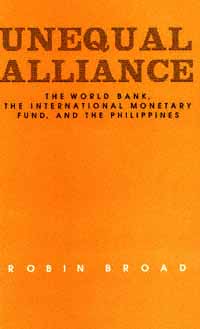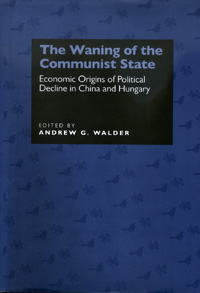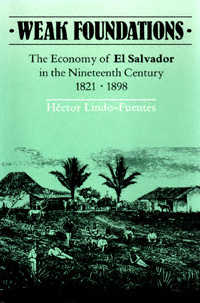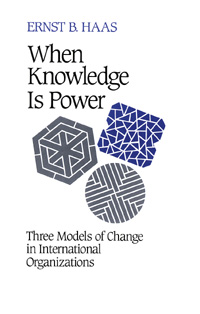formerly eScholarship Editions


|
|
|
|
Your search for
Public
in rights
'Economics and Business' in subject
found 44 book(s). | Modify Search | Displaying 41 - 44 of 44 book(s) | |
| 41. |  | Title: Unequal alliance: the World Bank, the International Monetary Fund, and the Philippines Author: Broad, Robin Published: University of California Press, 1988 Subjects: Politics | Southeast Asia | Economics and Business Publisher's Description: In this seminal work, U.S. development specialist Robin Broad chronicles the Philippine experiment with the structural adjustment model of development espoused by the World Bank and the International Monetary Fund. Similar Items |
| 42. |  | Title: The waning of the communist state: economic origins of political decline in China and Hungary Author: Walder, Andrew George Published: University of California Press, 1995 Subjects: Politics | Sociology | European History | Asian History | China | European Studies | Economics and Business Publisher's Description: This collection of essays offers a compelling explanation for the decline of communism in the two countries that went the furthest with economic reforms - China and Hungary. Articulating a vision of change that serves as a counterpoint to the prevailing emphasis on citizen resistance and protest, the contributors focus instead on the declining organizational integrity of the centralized party-state. The essays illuminate a "quiet revolution from within" that beset the two regimes after they chose to reform their economies and make concessions to the private sector.The nine contributors, three each from the disciplines of sociology, political science, and anthropology, examine key trends that appeared in both countries. The chapters trace political consequences of economic reform that range from the decline of the central state's fiscal dominance to the revitalization of long-suppressed ethnic loyalties. [brief] Similar Items |
| 43. |  | Title: Weak foundations: the economy of El Salvador in the nineteenth century Author: Lindo-Fuentes, Héctor 1952- Published: University of California Press, 1991 Subjects: History | Latin American Studies | Economics and Business Publisher's Description: Héctor Lindo-Fuentes provides the first in-depth economic history of El Salvador during the crucial decades of the nineteenth century. Before independence in 1821, the isolated territory that we now call El Salvador was a subdivision of the Captaincy General of Guatemala and had only 250,000 inhabitants. Both indigo production, the source of wealth for the country's tiny elite and its main link to the outside world, and subsistence agriculture, which engaged the majority of the population, involved the use of agricultural techniques that had not changed for two hundred years. By 1900, however, El Salvador's primary export was coffee, a crop that demanded relatively sophisticated agricultural techniques and the support of an elaborate internal finance and marketing network. The coffee planters came to control the state apparatus, writing laws that secured their access to land, imposing taxes that paid for a transportation network designed to service their plantations, building ports to expedite coffee exports, and establishing a banking system to finance the new crop. Weak Foundations shows how the parallel process of state-building and expansion of the coffee industry resulted in the formation of an oligarchy that was to rule El Salvador during the twentieth century. Historians and economists interested in the "routes to underdevelopment" followed by Latin American and other "Third World" countries will find this analysis thorough and provocative. [brief] Similar Items |
| 44. |  | Title: When knowledge is power: three models of change in international organizations Author: Haas, Ernst B Published: University of California Press, 1991 Subjects: Politics | Political Theory | Economics and Business Publisher's Description: Do governments seeking to collaborate in such international organizations as the United Nations and the World Bank ever learn to improve the performance of those organizations? Can international organizations be improved by a deliberate institutional design that reflects lessons learned in peacekeeping, the protection of human rights, and environmentally sound economic development? In this incisive work, Ernst Haas examines these and other issues to delineate the conditions under which organizations change their methods for defining problems. Haas contends that international organizations change most effectively when they are able to redefine the causes underlying the problems to be addressed. He shows that such self-reflection is possible when the expert-generated knowledge about the problems can be made to mesh with the interests of hegemonic coalitions of member governments. But usually efforts to change organizations begin as adaptive practices that owe little to a systematic questioning of past behavior. Often organizations adapt and survive without fully satisfying most of their members, as has been the case with the United Nations since 1970. When Knowledge Is Power is a wide-ranging work that will elicit interest from political scientists, organization theorists, bureaucrats, and students of management and international administration. [brief] Similar Items |